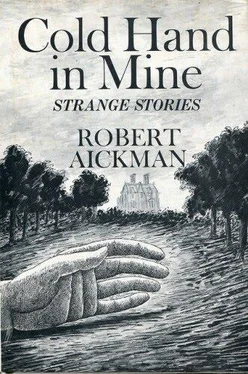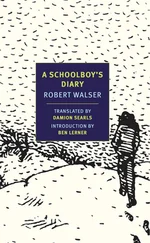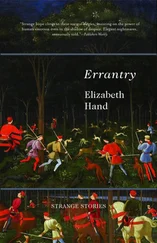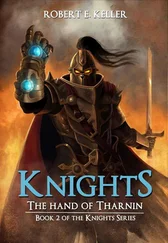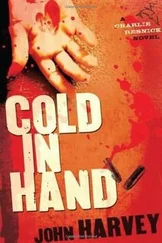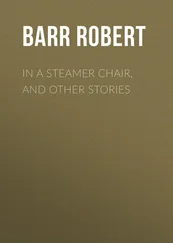And run we did, without a word of comment or argument from her; though not all the way, or anything like it, because we were staying about a couple of miles off in a sort of apartment house owned by a retired school-teacher named Mrs Ardale.
In theory, I could have afforded something rather better, but the big hotels were either out of action just then or in some way unsuitable. In the end, I had just gone to the Post Office and enquired, and they had told me about Mrs Ardale at once. It seemed a queer way to organize a honeymoon, especially when we are supposed to have only one honeymoon in each lifetime, but Ursula and I were like that from the first — and for some time still lying ahead. In any case, between us the idea of a honeymoon was a bit of a joke, as it often is in these times; but, for Ursula and me, a tender joke, which is perhaps not so usual. Mrs Ardale, by the way, was a divorcee, unlikely though that seems. She never stopped mentioning the fact. She also wore a very obvious chestnutty wig, though Ursula said her own hair was perfectly all right when one was permitted to catch a glimpse of it. I never took to Mrs Ardale, but she certainly kept the place very clean, which was important to Ursula, and food at that time was much of a muchness everywhere, or, rather, little of a littleness. Mrs Ardale used to serve us crabs caught in the lake. Not every day, of course.
Later, we moved on to a less satisfactory place, high above Ullswater. It was a bit of a shack in every way, but, fortunately, Ursula seemed not to mind much, possibly because she was now really getting into her athletic stride, small though she was. She was often a long way ahead of me at the crest of the fell, and she could swim like one of those slender, swift fish that never seem to undulate (or are they really fish?). But it was when we hired a dinghy and went sailing that I felt almost embarrassed by my uselessness and general ineptitude. Ursula always looked so competent, and she always seemed to have exactly the right clothes for whatever we were doing, simple though they were. I myself both look and feel better in business clothes — clothes for ordinary life in town. But I reflected that the hire-dinghies could hardly be at their best from a handling point of view after five years of total war and with no tackle yet available for repairing them; and, in any case, I have never seen myself as any kind of sportsman, nor has my health seemed to suffer from it. I liked my darling to be so spry and agile when we were on holiday together. I never minded in the least being shown up by her, though many would have said it would be bad from a business point of view. But at that time it could hardly have mattered, as I was still with Rosenberg and Newton, and not yet self-employed.
Which, needless to say, was why, when we settled down again, we started buying a house in the same suburb, the place where I had always lived. Also, old Newton, young Jacob's partner from his father's time, was able to help us a lot there: not only with getting a really good mortgage, but with getting a really good house too, and quite reasonably cheap, as he was in a position to put a little quiet pressure on the man who was selling. The property business is full of aspects like that, and it is useless to deny it. It always has been, and doubtless it always will be, until we mostly become cave-dwellers again, which may be soon. It was a remarkably good thing to have old Newton behind one when one was looking for a suburban house about twelve months after the second world war, especially as he was in local politics, which the Rosenbergs, father and son, always made a point of avoiding.
But Ursula would have done well in one of those caves. I could imagine her, small though she was, in a bearskin, and nothing much else; and coping with all that might arise far better than I can cope with even a luxury hotel, and terribly sweet and attractive all the time, often unbearably so. As it was, she settled down as if she had lived in this steady-as-she-goes suburb all her life. This suburb. This house. We had given more than three weeks to our honeymoon, world scarcity or no world scarcity. Speaking for myself, I could have gone on like that with Ursula for ever. I have a conscience, but few strong ambitions, as I have said. Oh, I can see Ursula's deep blue eyes now — as they were then — on our honeymoon — and afterwards.
But as soon as we were well and truly in, Ursula brought out no fewer than three more clocks. They were additional to the original cuckoo clock, and, I suppose, to the soft-speaking traveler's clock also. As it happens, I was never told at the time what became of that one. When I enquired, putting in a good word for the quietness, Ursula simply replied that "it was a once-for-all clock for a once-for-all purpose, darling," and smiled at me knowingly, or mock-knowingly.
"That was a clock I really liked, darling," I replied, but she said nothing in return, knowing perfectly well that, even then, I did not really like any of the others.
The truth was, from first to last, that one could not talk at all to Ursula about the clocks. About many other things, including some that were beyond my own scope, as I am no intellectual; and at almost any time: but never about them — about the clocks. One's words seemed to slip off her pretty, perfect body, her prettily chosen, freshly ironed dress, and then to dissolve on the carpet around her pink or yellow high-heeled shoes. I have in mind the grey carpet with the big, bold chains of flowers on which I last saw her standing and saying her listless goodbye when I set out to consult Dr Tweed.
I have said that one could not talk on the subject to Ursula. I suppose it would be truer to say that I could not. That, before long, was just the point. Perhaps there was another who could.
But, then, what normal, ordinary person — English person, anyway — could like those particular clocks; or at least so many of them? A single decorated clock, possibly — if the person cared for things of that general type — as I admit many seem to — though fewer perhaps than formerly. I am fairly sure that, at the best, the quantity of souvenirs brought back to Britain from the Black Forest by the public at large is nothing like what it was when the Prince Consort was alive and setting the vogue, with real trees at Christmas as well. And now it is years after the end of the second world war.
The clocks that Ursula brought into the house were not all grotesque in themselves: not all of them were carved into grinning gnomes, or giants with long teeth, or bats with wings that seemed to have altered their positions from time to time, though never when one was looking (or, once more, never when I was looking) — though some of them were, indeed, carved in those ways. It was more the overall uncouth monotony of the clocks that palled: that , more than the detail work applied to any one of them. As time passed, Ursula brought in more and more clocks, until, long before the end, I was almost afraid to count how many. I own it. I am not in the least ashamed of it, and what went on to happen, showed that I had no reason to be.
The clocks were so evenly brown — dark brown. When there was coloured detail, and often there was a mass of it, the colours were never bright colours. Or rather they were, and, at the same time, they weren't. I have often thought that the sense of colour is not strong in Germany. Of course, no one country can expect to have everything, and the last thing I wish to do is introduce an element of rivalry. I detest all things like that.
The coloured decoration of the clocks reminded me of fungus on a woodland tree, and there are many who find fungi not only fascinating but actually beautiful. One can eat many of them, if one has to, and sometimes I felt exactly that about the coloured clock decorations. They looked edible — upon compulsion. I imagine that the people who thought up the style in the first place based it upon what they saw in the vast, dark forests around them. The fungi, the teeth, the wings, the dark or shiny brownness. Even the shrieking and calling of the hours and the quarters might have been imitated from the crying of extinct, forest fowl. When there was a chorus of it in the same house, the effect was very much of a dark glade in which some unfortunate traveller had been deserted — or had merely lost his way.
Читать дальше
